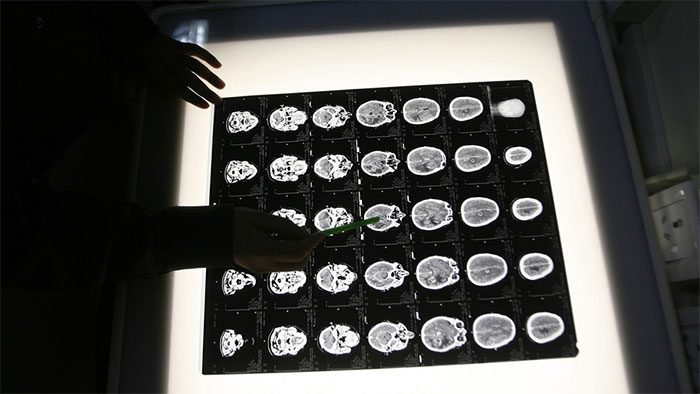A man claims he lost his sense of fear after undergoing brain surgery. This has left him indifferent to dangers in life.
According to RT (Russia), Jody Smith, 32, living in New York (USA), states that he no longer fears anything, a surprising outcome after he underwent a right amygdalectomy.
Previously, this man had endured brief panic attacks multiple times a day. He often experienced sudden fainting spells and had no recollection of the events that had just occurred. After consulting with specialists, he was diagnosed with epilepsy.

Man loses sense of fear after brain surgery. (Photo: Reuters)
Smith spent two years trying to treat his epilepsy with medication, but to no avail. Brain surgery was his last hope.
Before proceeding with the surgery, doctors implanted monitoring devices inside Smith’s brain so they could locate the source of his seizures. Smith was then instructed to try to induce seizures so the doctors could accurately identify the area of the brain that needed to be removed.
The 32-year-old man reported that he attempted to “self-harm”, primarily by playing loud music and depriving himself of sleep, hoping to trigger a seizure. At one point, his doctor even encouraged him to drink beer to expedite the process.
After a week, the surgical team pinpointed their target: the anterior half of the right temporal lobe, the right amygdala, and the right hippocampus of Smith. Three days post-surgery, Smith was discharged from the hospital. During his recovery at home, he noticed that the surgery had caused him issues with memory and concentration. Notably, the surgery had another, more curious side effect: it rendered him incapable of feeling fear.
“People describe many things with the word ‘fear,’ like fear of women or fear of failure. But here, I want to talk about the fear you feel when facing death or something serious like injury. My sense of fear has disappeared,” Smith described his “unique feeling” in an email to Vice.
He also provided some evidence that the surgery had affected his behavior. While walking through Newark, New Jersey, he was approached by a group of muggers. However, instead of avoiding the criminals, he calmly confronted them and walked past, a bold action that left him unharmed.
“Clearly, my loss of fear took those criminals by surprise,” Smith said.
In another instance, Smith noticed that he was being bitten by a spider, yet he did not feel the need to react frantically.
As a hiking enthusiast, Smith also discovered that he no longer feared standing near steep cliffs.
Smith seems pleased with his new sensation. He stated that although he still struggles with memory and concentration issues, his life has improved without the “sense of fear,” and he no longer has to be overly cautious of any dangers. Smith explained that he can now remain calm and use reason to carefully analyze situations rather than being overwhelmed by emotions.
While medical experts say that clearly losing his sense of fear is an unwanted side effect, they are not surprised by his new outlook on life. Dr. Sanne van Rooij, an assistant professor of psychiatry and behavioral sciences at Emory University, noted that Smith’s response after surgery is similar to other cases who have undergone similar procedures.



















































